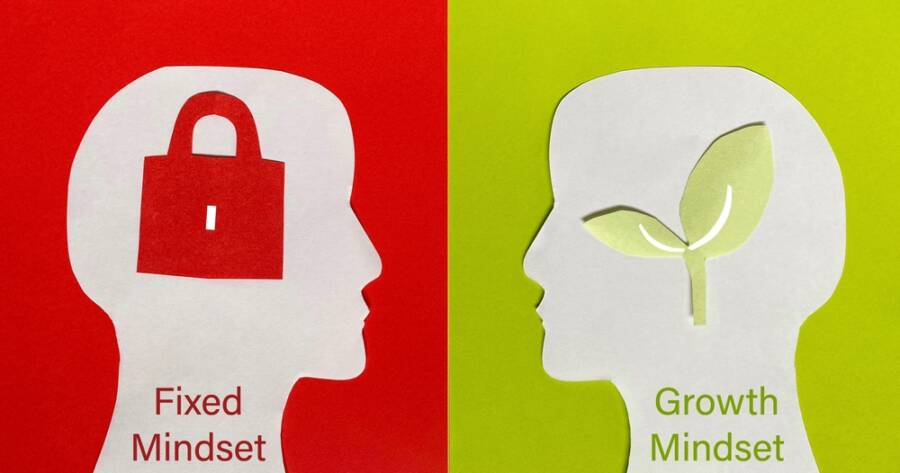Most people are afraid of failure. It can feel like a dead end—a final sign that you’re not good enough or not cut out for something. But according to psychologist Carol Dweck, failure isn’t the end. In her research on growth mindset, Dweck shows that how we think about failure can shape our future far more than the failure itself. By shifting the way we respond to setbacks, we can turn failure into one of the most powerful tools for personal growth.
Fixed vs. Growth Mindset: A Quick Overview
Carol Dweck’s work centers around two ways people view ability and intelligence. Those with a fixed mindset believe their talents and intelligence are set in stone—they either have it or they don’t. In contrast, those with a growth mindset believe that abilities can be developed through effort, learning, and persistence.
When someone with a fixed mindset fails a test, they might think, “I’m just not smart.” But someone with a growth mindset sees that same failure and thinks, “I need to study differently next time.” That small difference in thinking can completely change how a person reacts to challenges.
Dweck’s research has shown that people with a growth mindset are more likely to bounce back from setbacks, try new things, and improve over time. It’s not about ignoring failure—it’s about learning from it.
Seeing Failure as Feedback, Not Final
One of the most important steps in applying a growth mindset is learning to see failure as feedback. Rather than treating mistakes as proof of your limits, see them as clues about what to improve.
Think about how children learn to walk. They fall constantly—but no one sees that as failure. It’s simply part of the process. That mindset gets lost as we grow older and become more focused on results and comparison. But you can train yourself to return to that learning approach by asking different questions after a setback.
Instead of asking:
- “Why did I mess that up?”
Try asking:
- “What can I learn from this?”
- “What would I do differently next time?”
- “What part of this challenge can I control?”
Over time, this habit helps remove shame from failure. It teaches your brain to treat challenges like puzzles instead of walls.
Real-World Examples of Growth in Action
You don’t have to look far to find people who turned failure into fuel. Famous examples include Oprah Winfrey being told she was “unfit for television,” or Michael Jordan being cut from his high school basketball team. But growth mindset isn’t just for celebrities—it shows up in everyday life.
A student who flunks a quiz and decides to review their notes differently is using growth mindset. So is a job seeker who doesn’t get hired but rewrites their resume and tries again. Or a parent who loses their temper but later reflects and comes up with a better plan.
In each of these examples, failure wasn’t ignored or brushed aside. It was examined, learned from, and used to spark change.
Teaching Yourself to Embrace “Not Yet”
One of Dweck’s most popular insights is the power of the phrase “not yet.” When we say we’re “not good at something,” it sounds final. But when we say we’re “not good at it yet,” we open the door for growth.
This tiny shift in language helps remind you that skills develop over time. Whether you’re learning to code, trying to become a better listener, or running your first 5K, adding “yet” to the end of your statements builds patience and resilience.
You can also use this with others—especially children or coworkers. If someone says, “I can’t do this,” try gently reminding them, “Maybe not yet.” That mindset shift can make a big difference in confidence and motivation.
Reframing Your Inner Voice
We all have an inner voice that speaks when things go wrong. The problem is, that voice can be critical, harsh, and full of doubt. Reframing failure means learning to speak to yourself the way you’d speak to a friend.
Instead of saying, “I failed—I’m terrible at this,” try, “That didn’t go as planned, but I’m learning.”
Instead of thinking, “This always happens to me,” reframe it as, “This happened today, but I can respond differently tomorrow.”
Changing your inner dialogue doesn’t mean pretending everything is fine. It means acknowledging the struggle while also recognizing your ability to grow from it.
Growth Begins Where Comfort Ends
Failure is uncomfortable, but it doesn’t have to be a dead end. By applying Carol Dweck’s growth mindset in real life, you give yourself permission to learn, adjust, and improve. Setbacks become part of the story—not the end of it.
Whether you’re facing challenges at school, work, or in your personal life, the key is to shift your focus from what went wrong to what comes next. When you do that, failure becomes a stepping stone toward the person you’re becoming—not a wall that holds you back.

